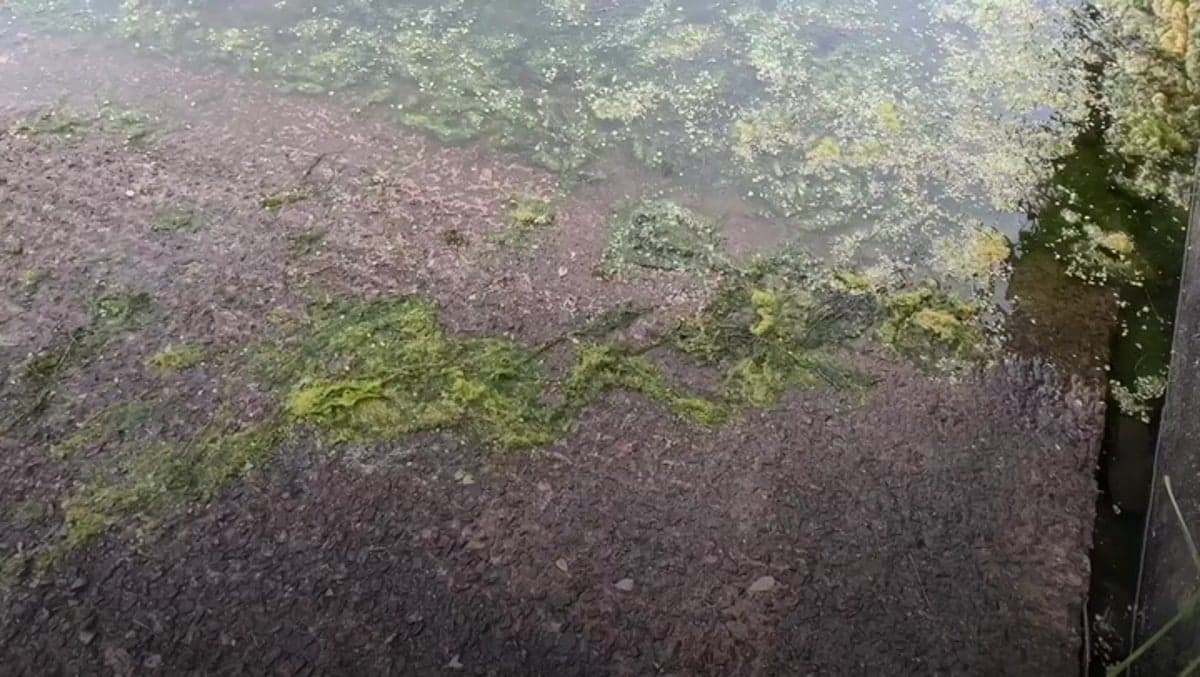LEICESTER, United Kingdom – Leading archbishops in Northern Ireland, both Catholic and Anglican, have called for more action to protect the largest lake in Great Britain and Ireland from toxic blue-green algae.
Lough Neagh is located in Northern Ireland, and the extensive algae bloom has closed swimming facilities and even kept animals from using the water to cool off.
Experts say the algae growth is the result of an excess of nutrients in the water, with contributing factors including the runoff of agricultural fertilizers from neighboring fields and also climate change, as the temperature of the water has risen roughly 1.8 degrees Fahrenheit over the past two decades.
Catholic Primate Archbishop Eamon Martin of Armagh and Church of Ireland Primate Archbishop John McDowell of Armagh issued a joint statement Tuesday on the algae crisis in Lough Neagh, stating, “[In] this, the season of harvest and creation we share the grave concerns, expressed by many, about the future of our beautiful and precious Lough Neagh.”
“This impressive body of water – the largest freshwater lake in these islands – is facing a dire threat from toxic blue-green algae,” the archbishops said.
“Collectively, we are endangering a natural asset that provides water to hundreds of thousands of families across Northern Ireland, sustains diverse fish varieties, supports wildlife and offers employment opportunities to thousands of people across the area.”
The archbishops noted that last week “representatives of our churches visited Lough Neagh and heard from some of those who live and work around it – people who love the Lough and enjoy it for all its recreational facilities, and others who depend on the Lough for their livelihoods and for fishing.”
On Tuesday, they said in a statement that in recent days, they had heard words of reassurance from those charged with protecting Lough Neagh.
“Still, the algae bloom persists and poses a real threat to livestock, pets and humans. It is indiscriminate in nature and a blight on the natural landscape and ecosystem,” the archbishops said.
“We are facing an environmental disaster and, as church leaders, we worry that the issue is not being given the priority it deserves. Before Lough Neagh approaches the point of no return, a collective examination of the causes and development of a robust plan to save this unique and ancient ecosystem is needed,” they continued.
“Our primary concern is that the response is too slow and is tied up in multi-agency bureaucracy. Whilst multiple stakeholders debate the remit of responsibility, Lough Neagh and those who live near and around it suffer,” they said.
“There is a clear need for decisive leadership. We must identify the causes of pollution and devise an Action Plan capable of arresting the decline.”
The archbishops said Lough Neagh “ought to be the jewel in our tourism and recreational crown and not a danger to life, flora and fauna.”
They added Northern Ireland “will not be forgiven for our inaction or inability to come up with workable solutions.”
The bishops’ statement came a day after over 100 protestors gathered at Lough Neagh to persuade officials to tackle the problem. Local news organization UTV reported the activists were dressed in black, representing a funeral for Northern Ireland’s primary water supply.
The news organization reported NI Water says that tap-water originating from Lough Neagh is still safe to drink, but acknowledged this “extremely serious” situation requires “urgent action.”
However, protest organizer Louise Taylor told UTV the protest “was a wake.”
“This is grief, this is loss, this is death, this is destruction, and we at ‘Love our Lough’ decided to put on this event, hoping that it would serve as a wake-up call for the people of Lough Neagh,” she said.
The Catholic and Church of Ireland archbishops said their appeal is “that a Task Force comprised of experts and relevant agencies be formed immediately and instructed to submit a report outlining procedures and actions required to avert a disaster within a short timeframe.”













